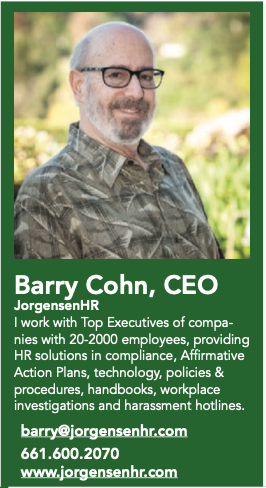In July, I wrote about the six sources of workplace cultural conflicts including unconscious bias. As workplaces be-come more diverse, employers and their employees are working with people of different backgrounds: race, age, gender identity, sexual orientation, nationality, religion, socio-economic status, and political views.
We then combine our pre-existing mindsets with unconscious bias, which are shortcuts our minds use to assess people and situations quickly. The instant we see or meet someone we do not know; we apply stereotypes we have learned from past experiences. Individuals make lots of assumptions and treat people differently, without even being aware they are doing so. As a result, this impacts how we com-municate, who we really listen to, how work is assigned, how we review perfor-mance and who gets promoted as well as creating conflict in the workplace.
Employers, therefore, need to focus on unconscious bias to help employees feel safe and have increased productivity. According to Emtrain in their guide to unconscious bias, they describe five dif-ferent types of behavior around this topic, dissenters, skeptics, know-it-alls, always learning and thought police.

Dissenters are people that just do not believe that unconscious bias exists. They are suspicious about social and behavior-al science and are confident they properly judge others, end of story. They tend to rationalize their behavior and maintain their power, privilege, and achievements.
Skeptics are open minded, but still grapple with the concept of unconscious bias. They have always thought of them-selves of good, fair, people, and because of their positive life experience they are oblivious of the challenges that other people must navigate. Because of this they are skeptical.
Know-It-Alls think they already know everything they need to know about unconscious bias. They are more careful how they treat women, people of color, people of various sexual orientations, etc. They are a little smug because they have been enlightened.
Always Learning employees are life-long learners who read new research, articles, blogs, and love to participate in activities to better themselves. They are open to new ideas about culture and the changing diversity of the workforce.
Thought Police are employees that are over-engaged and very aligned with the changing social mores. They think they understand unconscious bias, diversity, privilege and want everyone to agree with their understanding and actions. Di-vergent views are not acceptable to these individuals.
Employees need to be able to feel respected by their teammates, believe people show empathy toward them, be able to be themselves and not hide their authentic self, feel they belong and believe their ideas are valued.
We tend to minimize what others are thinking or feeling, but really their feel-ings and thoughts are just the same as ours. Employers and employees need to show a sense of understanding, com-passion, and respect. Employers need to engage their people and let them know that they can feel safe in your workplace.
During these challenging times it is very important for companies to ensure their employees are safe and engaged in the work at hand.


Recent Comments